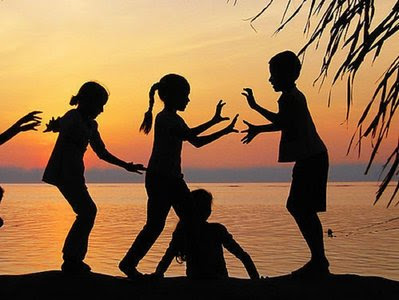Children learn good anger management skills by observing the behavior of adults, specifically their parents. It is therefore, important for parents to model their responses to anger. Children could emulate any of your aggressive responses to anger and display them for others to see.
Children Can Be Taught Anger Management Skills
Children can be also taught good anger management skills in a humanistic way. Children with good anger management skills have a healthier self-esteem and displays nonviolent behaviors when solving problems. They are also more willing to negotiate with their peers. Children can be taught about anger management through a number of activities or games.
Teaching Anger Management Skills With Games
Here are five games that you as a parent or teacher, can use to help teach anger management to children:
1. The Circle Mover Game.
This game helps children develop their span of concentration and observation skills. They also become more aware of self, give needed eye contact, learn to take turns in communication, and learn about body language. This game requires more than two people. One child starts off a movement, such as shaking a leg. Then each child copies the movement in turn until everyone in the game is doing the same movement. The game can be repeated as often with a different initiator.
2. The Friendship Game.
This game helps children develop their span of concentration, listening, and memory skills. They also become more aware of self, give needed eye contact, learn to take turns in communication, and learn about body language. This is a 10 minute game that require more than two people. It also requires children to move around a room. Children are told to find someone they don’t know well, and exchange four things about themself that the other person doesn’t know. The children must first introduce themself. They are not to record responses on a paper. The children may have a set questions for which they will furnish the answers.

3. The Anger-Feels-Like Game.
This game helps children develop their language and observation skills, and creative thinking. They also become more aware of self, learn to take turns in communication, improve their span of concentration, and make use of metaphors to help them describe feelings. This game can take up to an hour to do, and requires at least three people to make it fun. The game needs a moderator to record responses from participants.
4. The Anger-Looks-Like Game.
This game is similar to Anger-Feels-like. However, it uses pictures or drawings to helps children express themselves. Children learn the value of nonverbal language. They also learn to cooperate in groups. They learn to accept differences and varying view points. This game can take up to an hour, and requires at least three people to make it fun. Players form small groups, about three or four per group. Together they make a collage of a scene depicting some sort of conflict. Groups share their collage and try to guess what the picture represents.
5. The Colony Game.
This game helps children develop their observation, problem solving, listening, memory, and deductive skills. They also learn to cooperate in groups. This is a 10 minute game that require more than three persons. Players form two groups. One group become the “governors” of the colony. They welcome the new comers (or the second group into the colony). The “governors” must decide on two rules that would ensure membership in the colony. The second group tries to guess what these rules are to become members. The first group can give only three clues. they can only use drawing, pictures, or shape as clues. Once the clues are guessed the second group can become members of the colony.
Each game allows for some sort of reflection. Participants can form a circle and discuss how they felt about the game, express how they felt during the game, and their different viewpoints. Some games may have challenged their memory. They can reflect on how easy it was to remember facts and why they could not remember the fact.
Articles in this series:
That disturbing emotion called Anger
Is there such a thing as healthy anger
Do I have anger issues
Simple anger test
Facial displays of anger
Linking diet and antisocial behaviour
Methods and techniques of Anger Management
What is anger management
Quenching anger before it becomes destructive
Coping with the roadblocks of life
What triggers your anger bug
Teaching children anger management skills
When others are mad at you
“Stop anger, be happy”
“A Poison Tree” by William Blake
Download our free toolbar
Join our Facebook fanpage
Subscribe to our Newsletter

